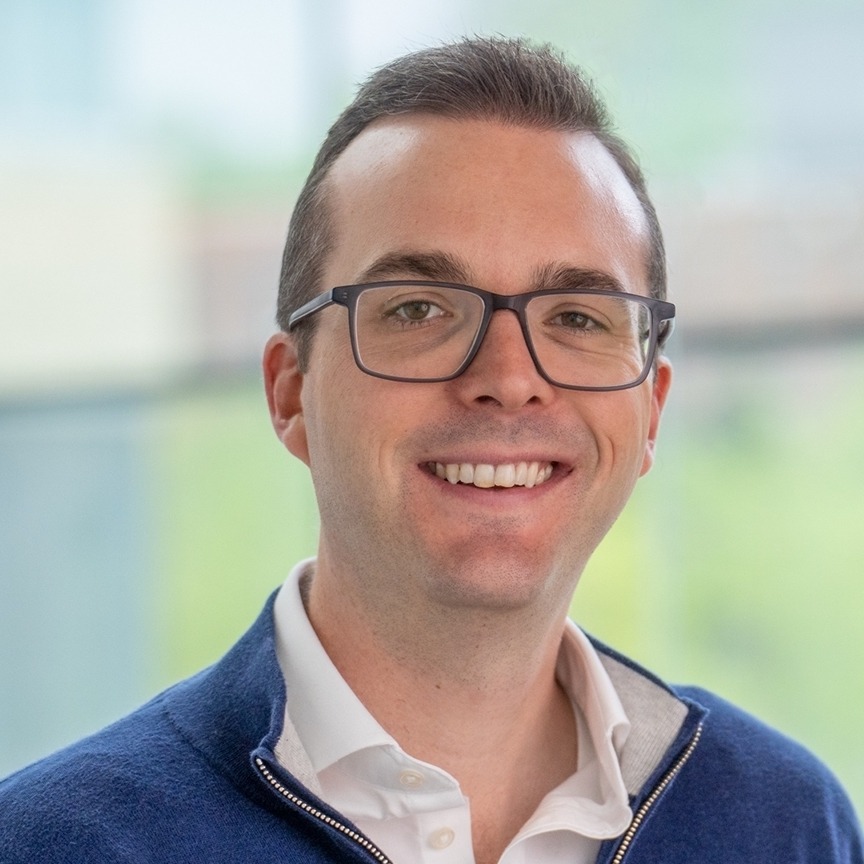Administrative Statement: Putting the Student First
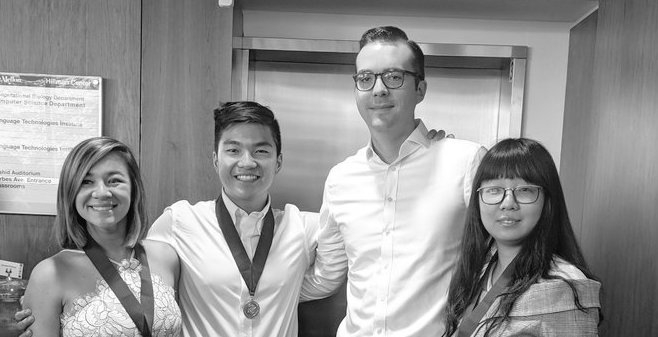
My Administrative Motto: Putting the Student First
I have served in a wide variety of different administrative roles, covering academic programs from high school to graduate students. I have completed a great deal of administration for a junior faculty member, and I would summarize my view of this administration in simple terms: putting the student first in all our work. It may seem reductive, but when students are happy, when they see administrators working on their behalf, everything else has a way of falling into place.
In what follows, I describe the university service that I have provided, divided over different roles.
Assistant Department Head (2017-Present)
I serve as the Assistant Department Head of the Computational Boiology Department, which has allowed me the latitude to undertake a variety of administrative measures putting the student first.
Working previously with Samantha Mudrinich and now Tara Seman, I have instituted a social events calendar for all students in our department with the intention to build a stronger sense of student community. We have seen the participation in these events grow from a small handful of students a few years ago to now well over 100 for some events.
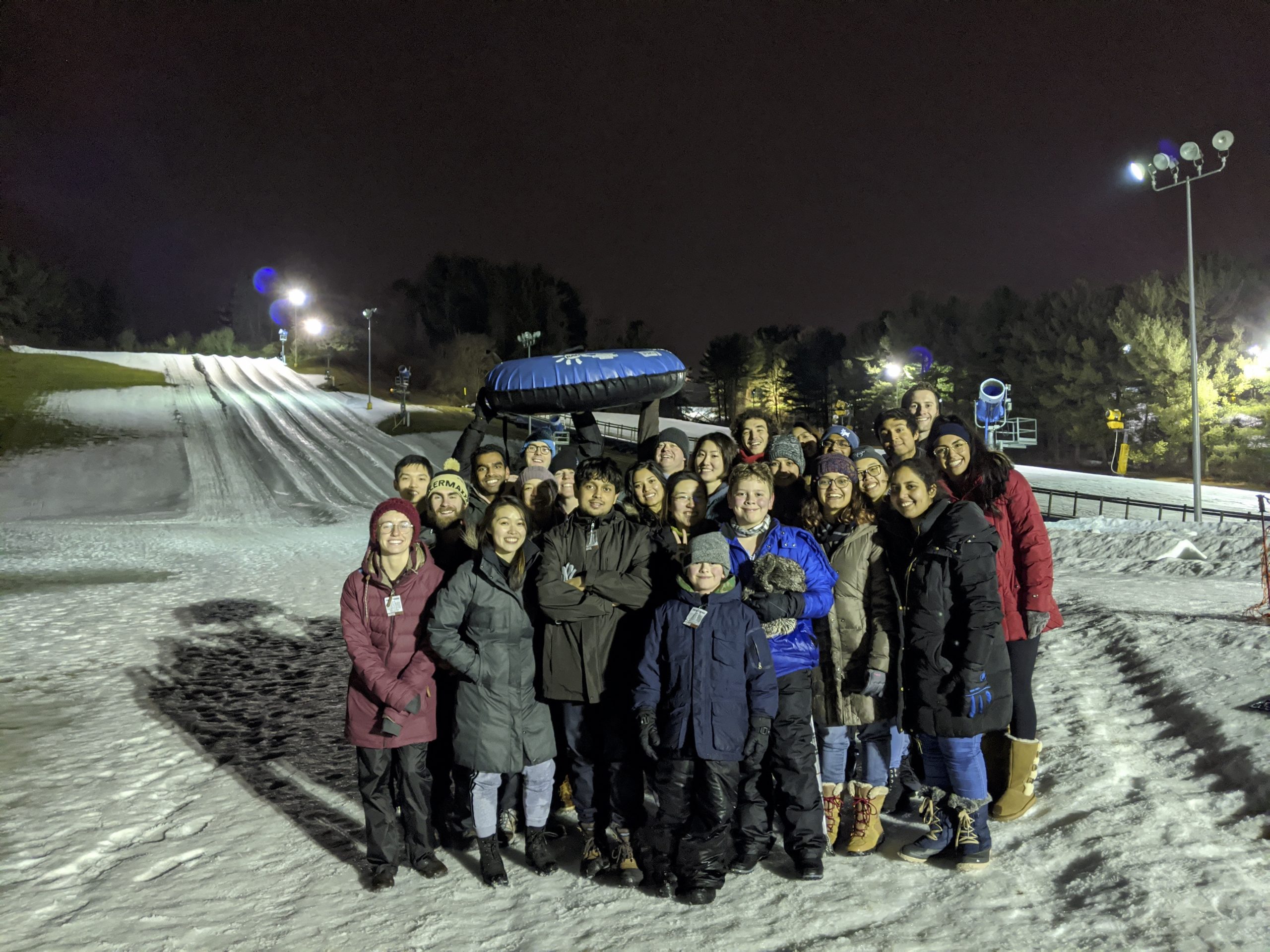
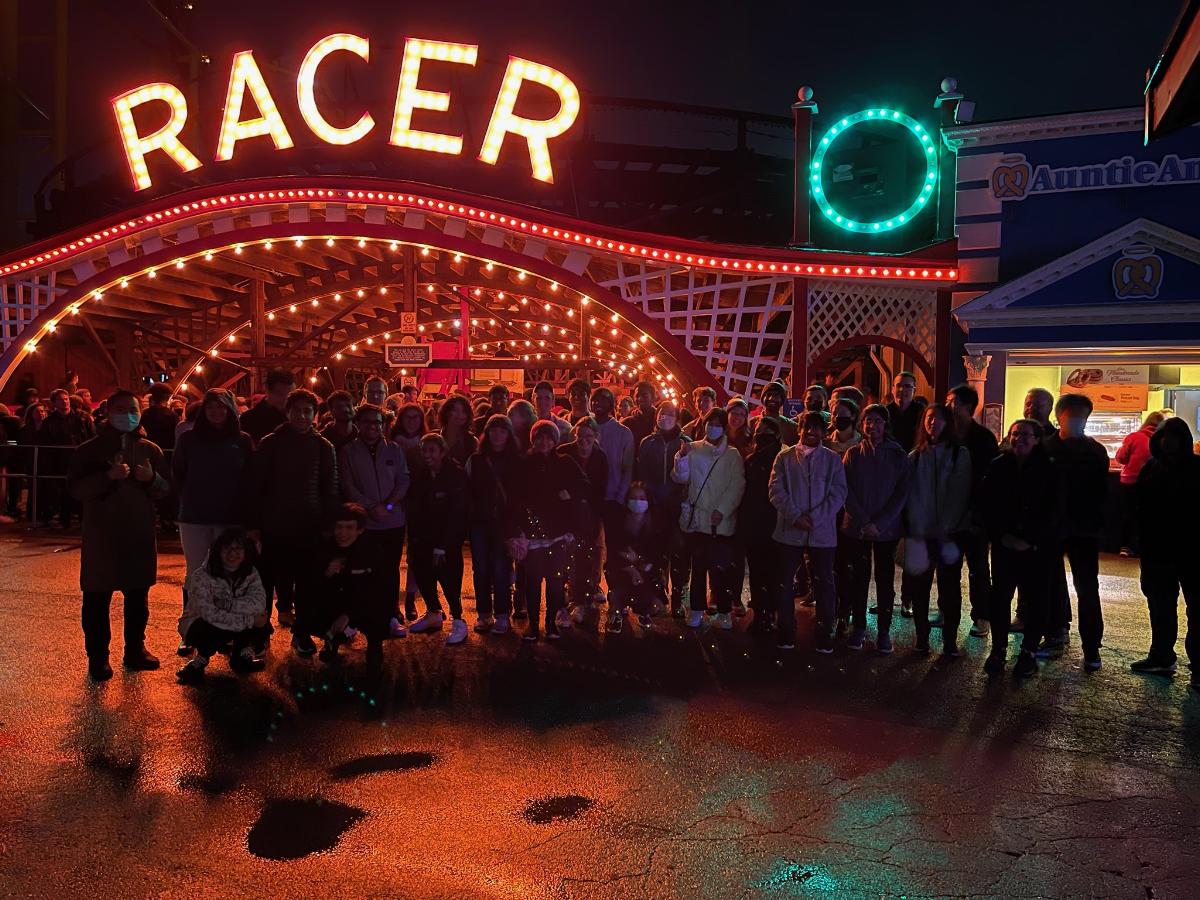
It is rare that individual academic departments take a vested interest in the career paths of their students. In the case of our own department, computational biology is a rapidly growing field with demands for students in a variety of different types of organizations, from pharmaceutical firms great and small, to genetic ancestry companies, to research organizations, to large biotech companies.
When I have spoken to industry representatives, I hear repeatedly that they struggle to find candidates who can combine strong biological foundational knowledge with an understanding of how to rigorously solve computational problems. Our students are perfect fits for these types of roles, but they are not as easy to find as positions in, say, large tech firms that hire teams of recruiters to criss-cross the country looking for computational talent.
I have undertaken a number of efforts to help our students bridge this gap and get connected to opportunities. I consolidated a list of over 500 hundred contacts from 250 organizations, including the effort of building an alumni database for our department. I compile resume books of all our current students and send these resumes to our contact list, as well as advertise positions that our contacts send along. I am proud that these mailings have opened quite a few doors for our students.
Traditionally, I have invited several speakers from this list to speak to our students as part of our “industry science talk” series. During the pandemic, we used the opportunity of online delivery to grow this project further. In January 2022, I took the next steps and (working with Ally Ricarte) organized CMU’s inaugural Biotech Industry Fair, a one-day event that connected two dozen employers across the biotech and pharmaceutical industry with 257 CMU students. Our hope is to make this fair an annual event at CMU and grow it significantly in the coming years.
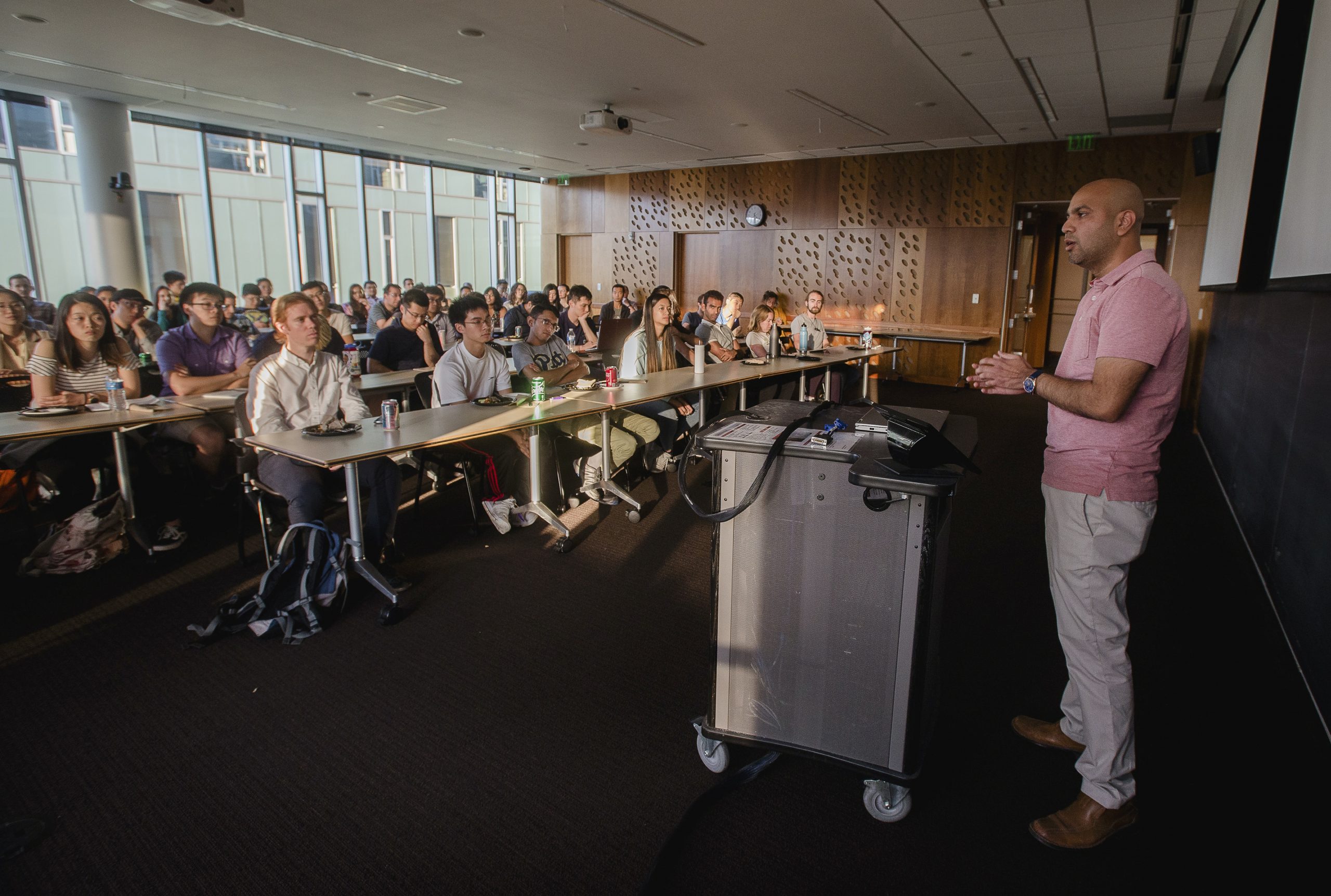
I have also helped administer two different overhauls of our departmental website, in both 2016 and 2020. The changes made in 2016 included an expansion of informational content provided on the site, and this led to a 200% increase in web traffic.
Every semester, once our department head decides on the list of courses we will offer, I work to set the schedule of courses to present to the registrar. This is a particularly challenging process at Carnegie Mellon, a university with limited classroom space.
In 2017, I served as a faculty liaison to work with a marketing team and designer to overhaul our department’s logo, shown below.

I began a collection of research poster boards throughout our department, showcasing our students’ excellent work. I initiated an electronic departmental photo directory, so that the first thing that visitors see is the smiling faces of our faculty, staff, and most importantly our wonderful students. And in fall 2021, I purchased board games from my own funding that could be enjoyed by all present and future members of our department.
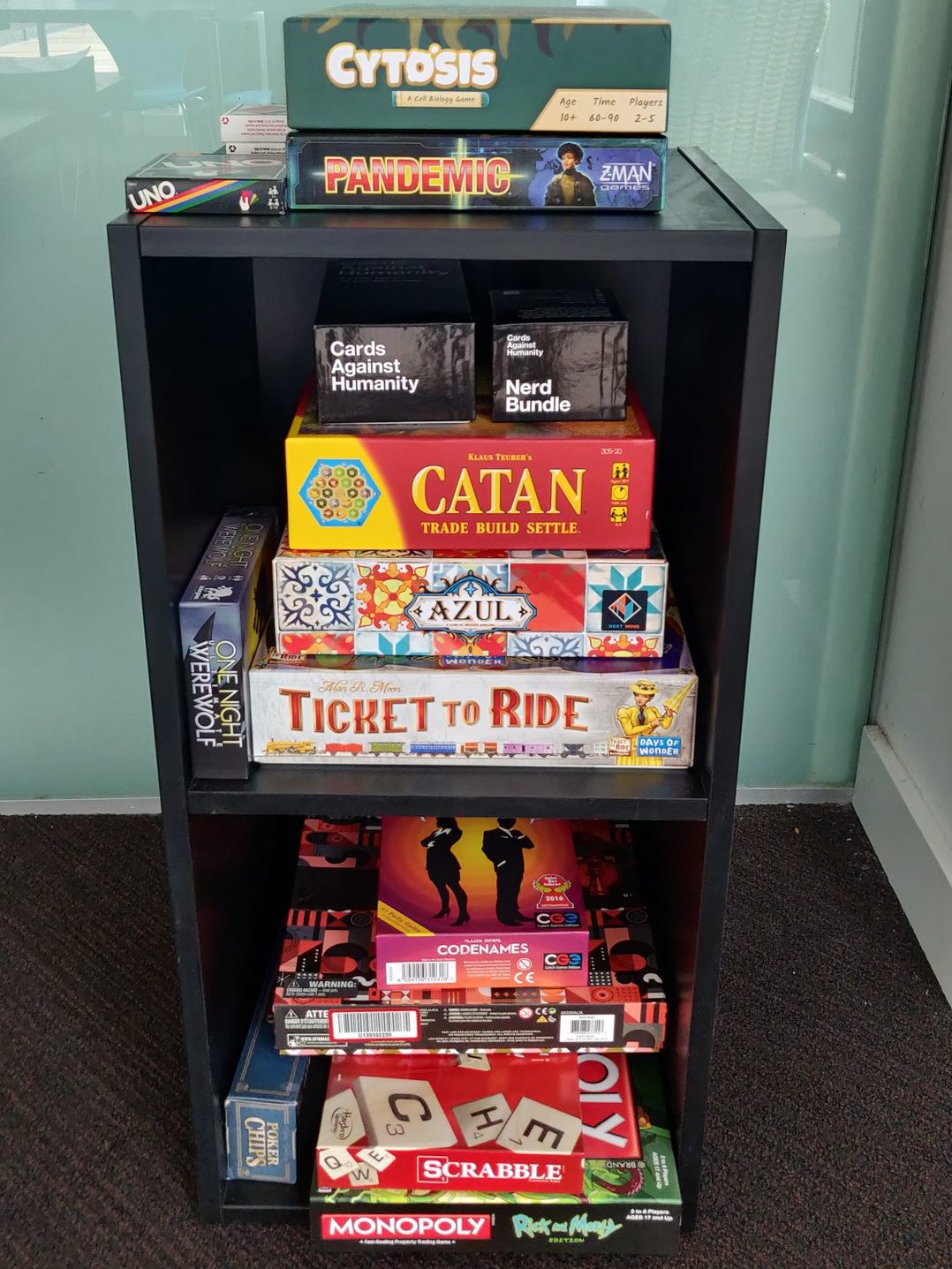
Undergraduate Program in Computational Biology Director (2016-Present)
I serve as the Program Director for the undergraduate program in computational biology, which is one of four majors available to undergraduate students in CMU’s School of Computer Science.
To roll out the computational biology major, I oversaw a committee of Computational Biology Department faculty to build the curriculum from the ground up. This effort required making careful decisions to ensure students were receiving sufficient breadth coursework in mathematics, computer science, and science, while also getting exposed to a depth of coursework at the intersection of computer science and biology. One of my proudest achievements in this curriculum was our proposal ofGreat Ideas in Computational Biology, a comprehensive introductory course in computational biology for first-year undergraduates in the School of Computer Science.
Our curriculum committee also developed an additional major and a concentration in computational biology for students interested in computational biology whose primary major is in another field. In 2021, we established a mission statement, provided below.
Mission: We provide training in computational biology to a diverse set of future leaders across a spectrum of biomedical and technical careers via innovative teaching and cutting-edge research in a student-centric community.
To market our degree program, I designed a visual “honeycomb” representation of our curriculum that was later adopted by other majors in the School of Computer Science (shown below), and I worked with the School of Computer Science’s marketing team to develop a program flier. I disseminated these materials to hundreds of high school computer science and biology teachers from lists that I had compiled.
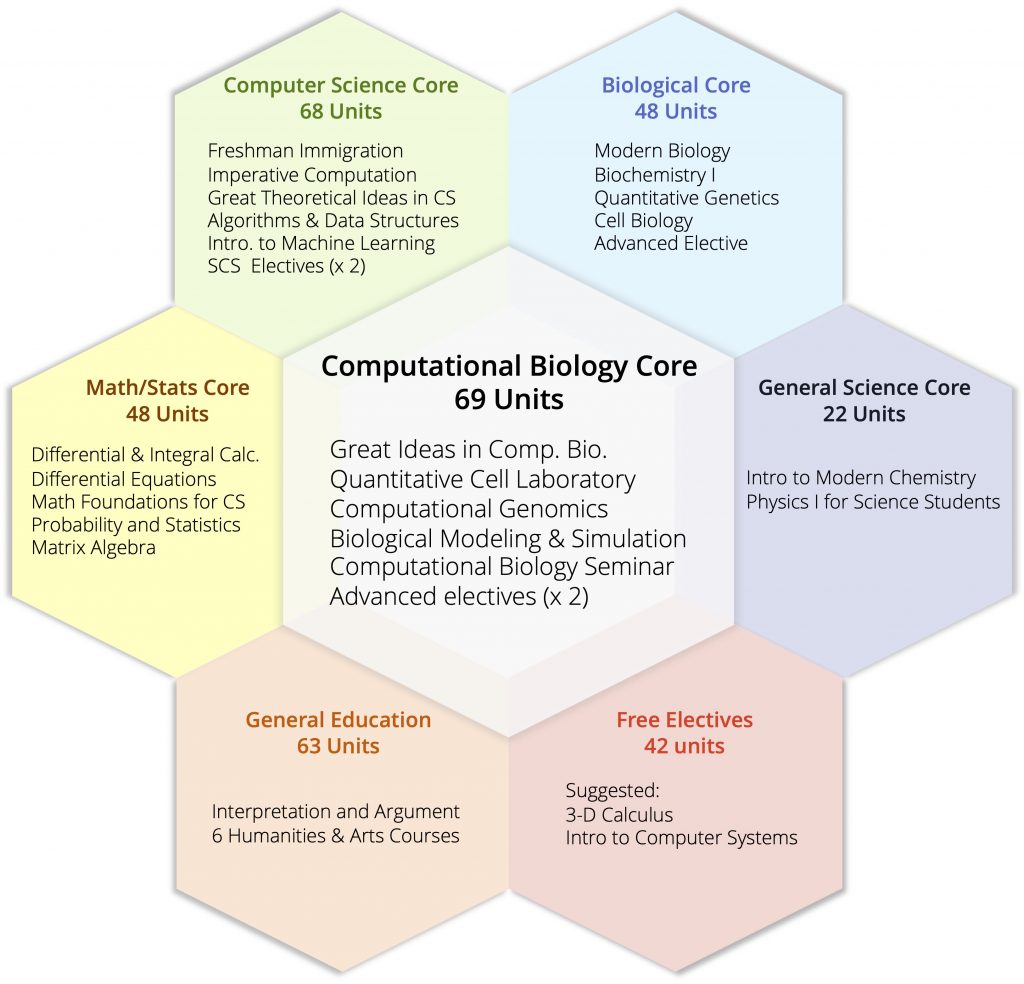
I have spoken about the computational biology undergraduate program at a collection of high schools around the country, and I speak at CMU about a dozen times every year as part of admission’s “Turn Tartan Overnight” and “April Yield” weekends to groups of prospective students visiting the campus. I recorded a 40-minute version of this talk to YouTube, shown below, which answers the important question “So what is computational biology?” and discusses how students can study it at Carnegie Mellon. This recording has performed well as a service to the public, receiving 12,000 views.
When students are admitted to study computational biology, I want them to have a world-class experience. As program advisor, I help guide computational biology majors through their academic studies, and I provide additional assistance where needed to students completing the additional major, concentration, or minor program. An important part of my role as advisor is not only to ensure students are completing their courses, but to get to know them and find ways to advocate for them outside of class, from referring them to campus resources to nominating them for awards (e.g., Phi Beta Kappa, ACS scholars, Goldwater scholarship) where appropriate.
After speaking with students, we found that they were almost all interested in research, something which many undergraduate programs with hundreds of programs simply cannot facilitate. We therefore developed a “research pledge” in which we promise at least one semester of undergraduate research to all of our students. I believe that this pledge makes us unique among undergraduate programs across the world. I am also thrilled that our students organized their own student society for undergraduates interested in computational biology, of which I serve as faculty liaison.
Running a successful program also means building connections across the school. I serve on the School of Computer Science’s Undergraduate Review Committee, which reviews curricular changes at the school level. I liaise with the first-year academic advisor for SCS students to ensure that students interested in computational biology are identified early and advised correctly on their first-year courses. And I collaborate with the Associate Dean for Undergraduate Education as well as the directors of other SCS undergraduate programs to ensure effective communication and propose policies affecting all SCS students. A recent example of the benefits of this collaboration was my chairing of a subcommittee to establish school-wide guidelines regarding an honors research thesis.
The most bittersweet part of directing an undergraduate program is watching our students graduate. I certify the degrees of all students completing a minor, concentration, major, or additional major, and I am present with other program directors at the school honors ceremony and to celebrate their commencement.
PreCollege Program in Computational Biology Co-Director (2019-Present)
In 2019, Josh Kangas and I co-founded the PreCollege Program in Computational Biology, a three-week intensive experience for high school students that is one of several summer programs offered by Carnegie Mellon University PreCollege. Here is our mission statement.
Mission: We empower bright young minds from diverse backgrounds to unlock the power of computation in order to solve research problems at the frontier of modern biology.
Teaching an advanced interdisciplinary subject like computational biology to high school students is a challenge that very few educators have taken up. Josh and I spent an entire year structuring a three-week curriculum in which students first captured water samples from Pittsburgh’s three rivers, as we formed a partnership with a local nonprofit called Rivers of Steel that has its own state-of-the-art science vessel.
I speak more about the curricular aspects of this program in my teaching statement, but will discuss its administration here.
To get the word out about our program, we worked with the SCS marketing team to develop a program flier. We also embrace opportunities to speak about our program to others. We have given information sessions organized by the Carnegie Mellon PreCollege office. In 2020, we spoke at ISMB, the largest global conference in computational biology, but we also spoke to a consortium of Pittsburgh-area high school teachers adding bioinformatics modules to their classes, as well as students involved in Ruth’s Way, an area program for underrepresented female students.
Attracting a diverse collection of students is critical to us. To ensure that we are not excluding talented students, we do not require students to have ever coded before our program, instead providing all students with preparatory materials from my Programming for Lovers project. We also use a “past the post” admissions system, in which we accept all students who can demonstrate that they are eager and able to complete our program.
Finally, we are very proud that our department has raised significant funding for additional program scholarships for socioeconomically underrepresented students. We have thus far been able to meet 100% of demonstrated need in our students, and we hope to grow our scholarship funds in the coming years so that we can attract an even more diverse collection of students.
MS in Computational Biology Assistant Director (2015-2021)
For six years, I served as an assistant director of the MS in Computational Biology program (MSCB).
My primary responsibility in the program was to serve as a professional advisor for students. Working with three separate biology faculty (Shoba Subramanian, Stephanie Wong-Noonan, and DJ Brasier), I redesigned the the Professional Issues in Computational Biology course taken by first-semester master’s students in our department, which I discuss in my statement of teaching philosophy.
My organization of industry and social events for the Computational Biology Department, described under my Assistant Department Head duties, began as initiatives for students in the MSCB program and grew into departmental efforts.
I also was able to propose a number of administrative measures that constituted large- scale changes to how the program was run. At my suggestion, we reformatted the MSCB curriculum to greatly increase the number of required courses for students to take in order to reflect the growth of our department and the courses that we were offering. This improvement ensured that students were taking more courses relevant to their degree of study, and it meant that enrollment in electives within both the Biological Sciences Department and Computational Biology Department skyrocketed.
In redesigning the curriculum, we also introduced a foundational course in mathematics and statistics (which I taught in its first iteration with Seyoung Kim), as well as a quantitative genetics course, and a machine learning course with all of its motivation taken from computational biology.
At my suggestion, we also removed partial merit scholarships for the program (which have since been replaced by full fellowships for underrepresented students), which saved the program about $75,000 per year, without any effect on program yield. We were able to reinvest a great deal of these annual savings into targeted marketing campaigns aimed at domestic and underrepresented students, social events for students, and establishing an Open House for the program. This Open House began in 2018 and grew in 2021 to have over 80 attendees.
I also identified the enormous value in asking incoming master’s students to spend time during the summer before they begin their degree preparing for their coursework. To this end, I developed a bootcamp of required preparatory materials in programming (taken from my Programming for Lovers project) as well as several chapters of preparatory mathematics content that I wrote. This preparatory material ensures that students begin our program having already been introduced to basic programming concepts as well as introductory proof techniques and discrete mathematics.
Although I have sunset my day-to-day role in this program, I am retaining a connection to the MSCB program via my teaching as well as through the industry and social events that I organize in my role as Assistant Department Head.
Other service
In addition to the above administration, I have provided additional service in a few forms. I serve on the Elizabeth W. Jones Award Evaluating Committee, which gives an award to an outstanding researcher in experimental or computational biology. I have historically served on the SCS Student Teaching Award committee, and I currently serve on the Honors Thesis Award committee, which assigns awards to undergraduate research theses in SCS. I served on the search committees for the head of the Computational Biology Department as well as for the appointment of two Associate Deans in SCS for undergraduate education and for diversity, equity, and inclusion.
